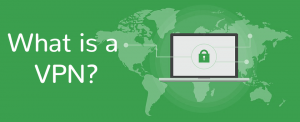Monitoring the exchange of communications has long been a primary focus of the Alliance members, and with the rise of digital communications and the Internet, this area of their surveillance has expanded to include the monitoring of these technologies.
The governments have the ability to do the following:
- Install malware on electrical components
- Override national laws in favor of their wishes
- Require companies to give away private user information
- Require companies to give the five nations plans for new devices
The Five Eyes have two ways to collect data, the PRISM method, and the Upstream Collection Method. PRISM works with global companies such as Apple, Google, and Microsoft. The Upstream Collection Method collects data directly from communications between two parties. It does this by monitoring fiber cables and other infrastructures.
What is the Five Eyes Alliance?
Five Eyes, or “FVEY”, is a worldwide surveillance program that was developed in the mid-1900s.
As the name implies, there are five countries in the alliance.
The program began by intercepting telephones, faxes, and computers as a spying program in WWII. With the advent of the Internet, spying has become widespread. It now affects the privacy of civilians around the world.
The name “Five Eyes” refers to the designators on classified documents.
For example, top-secret documents can be designated as “US Eyes Only”. With five nations being involved, it became easier to say “Five Eyes Only” instead of “For AUS/CAN/NZ/UK/US Eyes Only”.
Currently, the five countries in the alliance are:
- Australia
- Canada
- New Zealand
- United Kingdom
- United States
What Data is Collected And How Does the Government Find Out?
After the recent global terrorist attacks, several Alliance members have begun to expand powers of surveillance inside their borders. While the primary goal of the Alliance is to protect citizens from foreign terrorist schemes, the Alliance has also begun watching the activities of citizens within member countries.
One of the ways in which this is being achieved is through telecoms and Internet Service Providers (ISPs).
In the US, ISPs must keep track of the subscribers’ names, billing address, IP address, date and times ranges, hardware information, etc. And ISPs must hand over the data to the government agencies if requested.
In the UK, the Regulatory Investigatory Powers Act (RIPA) of 2016 requires telecoms and ISP companies to log the connection information of users, together with their text messages and browser histories for a minimum of 2 years. That information must be accessible by the UK”s government agencies and their partners without any need for a warrant.
All member countries within the Alliance all have similar laws regarding data retention.
The activities of many prominent people have been monitored over the years by the Five Eyes Alliance. Celebrities such as Jane Fonda and John Lennon, and political figures like Nelson Mandela and Angela Merkel have all been of interest to the Alliance at one time or another.
Unofficial Member Countries of the FVEY
As well as the five core member countries, there are others which are unofficial members.
The main unofficial member countries are:
- South Korea
- Singapore
- Japan
- Israel
- 14 British Overseas Territories
These countries cooperate with certain members of the Alliance, furnishing information but not necessarily receiving any information in return.
The Nine Eyes and Fourteen Eyes Alliance
Both the Nine Eyes Alliance and the Fourteen Eyes Alliance are, as you might guess from their names, extensions of the Five Eyes program.
The purpose of these organizations is to expand the surveillance reach across the member countries. Although these two expanded organizations have a less strong reciprocal relationship in terms of cooperation as the Five Eyes Alliance members, they still share information with other members.
The Nine Eyes Alliance
The members of the Nine Eyes Alliance include the original Five Eyes Alliance members together with four other countries.
Namely:
- France
- Denmark
- Norway
- Netherlands
The purpose of this extension is simply to allow greater cooperation among the countries, enabling the collection and sharing of greater amounts of data between the members.
Although the four additional members making up the nine do not have as high a level of cooperation when compared to the original Five Eyes Alliance members, they can take advantage of resource and data sharing.
Fourteen Eyes Alliance
A further extension of the Five Eyes Alliance and the Nine Eyes Alliance, the Fourteen Eyes Alliance incorporates all of the members of the other two organizations together with:
- Sweden
- Italy
- Belgium
- Spain
- Germany
Just like the Nine Eyes Alliance, this expanded organization is designed to allow for more extended surveillance as well as greater sharing and collecting availability for member countries.
The five additional countries that were added to the Nine Eyes members to make up the Fourteen Eyes Alliance have even less of an intimate relationship with the original Five Eyes members than that enjoyed by the four additional Nine Eyes Alliance members.
However, they too can take advantage of access to intelligence and resources which otherwise they may have been unable to access. This group also has an official name, which is the Signals Intelligence (SIGINT) Seniors Group – more on this under the history section below if you’re interested.
Surveillance Of Communications In Third-Party Nations
The Five Eyes program has since evolved to include several tertiary countries. The nations co-operate with the surveillance requirements. For example, Denmark agreed to have equipment installed in their country in exchange for access to NSA technology.
The Effect On Virtual Private Network (VPN) Providers
For the general public, the area in which the surveillance activities of the Alliance members could have a major impact is in the field of monitoring VPN providers.
Providers which are based within any of the Five Eyes, Nine Eyes or Fourteen Eyes Alliance nations as well as any providers which are based in territories and countries which cooperate with any of those member nations could be logging data about what their customers are doing online.
The three Alliance organizations operate on a global scale and can, therefore, monitor communications around the world.
Even when VPN providers claim to not provide logs, it is still possible that they are keeping logs including information like IP addresses, the times of the start and end of the browsing session and how much data was used in each session.
This has led to concerns by private citizens that their privacy with regard to online activity could be compromised. The reason being, the Alliance members are monitoring connections, VPN and ISP logs.
These concerns have only increased since 2013 when documents were revealed by Edward Snowden which showed that the Five Eyes states had been using other members states to spy on their own citizens in order to circumvent the restrictive laws surrounding citizen surveillance.
Importance of No Logs
Today, most, if not all VPNs claim that they do not keep any logs.
This is an underhanded marketing tactic from shady VPNs to gain trust from their visitors. People often fall for this tactic and are often exposed to logging.
Why is this important?
A VPN is your first line of defense.
If you are torrenting illegally, you are exposed. A VPN could mask you from trackers, but upon further investigation, your VPN provider will have to hand over your data – opening you up to lawsuits.
If you are doing any illicit activities, you are exposed. A VPN could conceal your identity for the time being, but again, if the government requests your data from the VPN provider, your data will be handed over.
If you are a privacy advocate then using a VPN that logs is contradictory. A VPN that keeps logs simply isn’t protecting your identity and privacy remains as an illusion.
History of the Five Eyes Alliance
The Alliance began in 1941, when the United States and Great Britain agreed to share their intelligence with each other. This was part of the Atlantic Charter as a secret treaty. It was then renewed two years later when the BRUSA agreement was made. The final BRUSA agreement was made official in 1946. After this, more nations joined the pact. The countries that joined after the initial formation were New Zealand, Australia, and Canada. The Alliance became known as the UKUSA/BRUSA Agreement, and the name has stuck despite other nations joining the pact.
Surveillance During War Time
During the Cold War, the National Security Agency (NSA) and cooperating nations spied on the Soviet Union, The Republic of China, and many Eastern European nations. These Eastern European countries were referred to as “exotics”.
When the Vietnam War came, surveillance carried out by the United States was greatly supported by New Zealand and Australia. Operators were located in the Asia-Pacific region and in the British colony of Hong Kong. The station in Hong Kong monitored the air network in North Vietnam.
During the Falklands War, the British were given intelligence from other nations in the Five Eyes Alliance.
The ECHELON Program
Originally, the five nations used a program called “ECHELON” to spy on people and governments.
This technology was developed during the second world war to eavesdrop on the Soviets and their allies. It consisted of several points on the globe where computer, telephone, and faxes were interrupted.
The records were then kept on ECHELON computers, which hold vast amounts of data. ECHELON also intercepts private communications.
Telephone calls, e-mails, fax, and other forms of communication are all vulnerable to interception. The significance of the ECHELON program lies in its ability to not only collect communications, but sort through them.
Using keywords and phrases, ECHELON can pinpoint suspicious activity.
SIGINT
Originally formed back in 1982 at the height of the Cold War, the SIGINT Seniors Group in Europe had 9 members in its first incarnation.
At that time, the primary focus of the organization was to uncover information about military movements in what was then the USSR. In more recent times, the group expanded to fourteen members and the focus moved onto counter-terrorism.
The intelligence that is shared between the five nations is called “Signals Intelligence”.
Signals intelligence involves the interception of communications. The communication could be between people, or it could be between electronic systems that create signals.
The SIGINT Seniors Group has worked together in the past on the monitoring of communications at the time of major events in Europe, such as the 2004 Olympics and the 2006 Winter Olympics as well as the 2006 Soccer World Cup.
Today, the SIGINT Seniors Group remains active and is increasing capabilities to encompass the Internet and digital communications.
Much of their work today is focused on combating international terrorism, primarily coordinating military signal exchanges among the fourteen member countries.





 Not only do they have a constantly updated list of working VPNs for Netflix, but you can even contact their live chat support for help. They’ve assigned us a working server in under a minute.
Not only do they have a constantly updated list of working VPNs for Netflix, but you can even contact their live chat support for help. They’ve assigned us a working server in under a minute.








